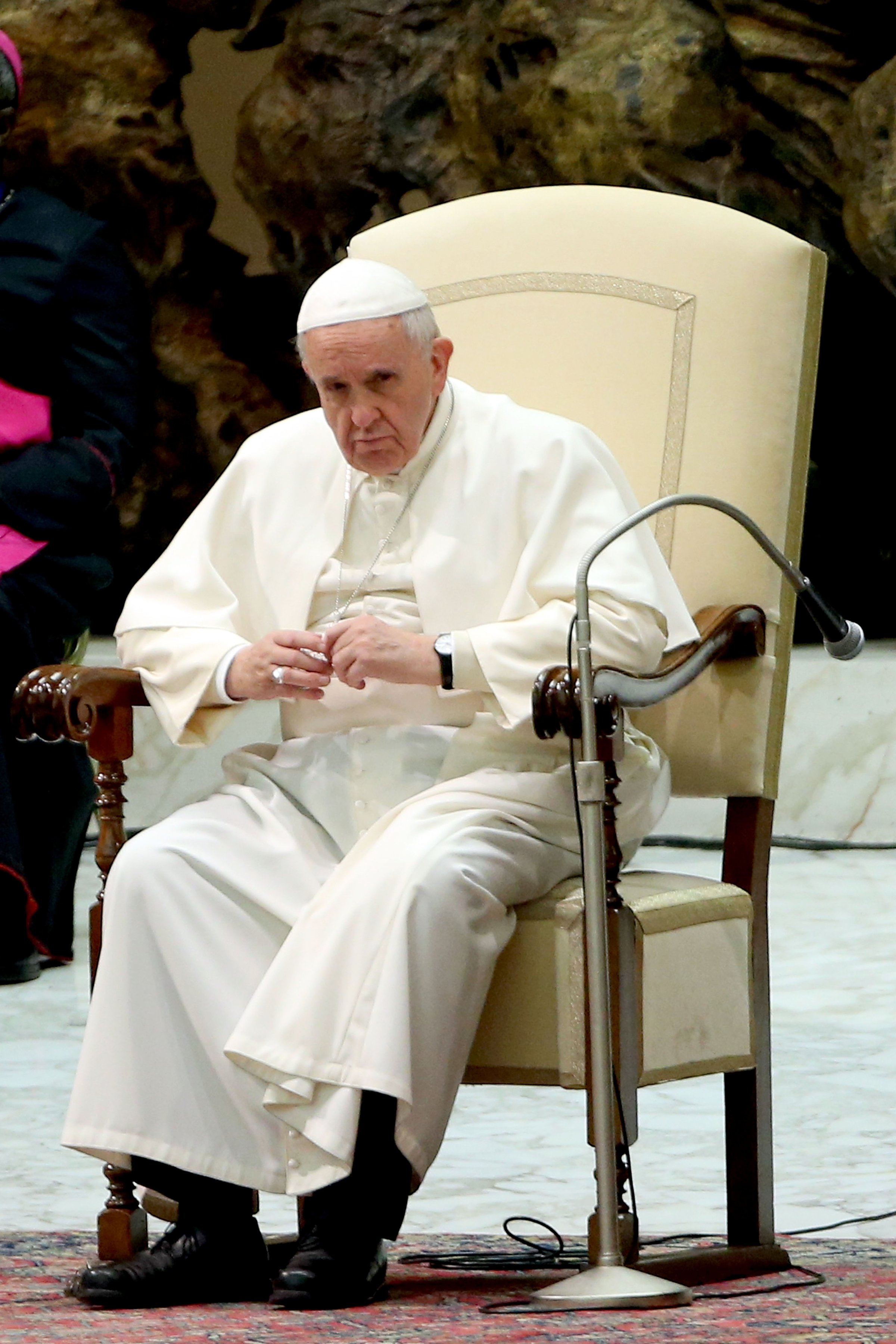
On Tuesday, Pope Francis declared that Salvadorean Archbishop Oscar Romero was martyred “in hatred of the faith” and not killed for simply political reasons. Francis’s decision came nearly 35 years after Romero was assassinated by a right-wing death squad while celebrating Mass on March 24, 1980. His announcement opens the door for Romero’s beatification, the final stop on the road to sainthood in the Catholic Church.
But the decision is not without controversy. Though the Vatican formally began the process to canonize Romero in 1997, it was blocked for years as Rome navigated a wider debate across the United States and global Catholic community about whether Romero was killed for defending the faith or for taking strong political stances against the Salvadorean government.
During his pastoral ministry in San Salvador, Romero preached strongly against the violence that the military government committed against its political enemies—particularly against the nation’s poor and excluded. In a passionate homily the Sunday before his death, Romero called on the military to end the violence:
No one has to obey an immoral law. It is high time you recovered your consciences and obeyed your consciences rather than a sinful order. The church, the defender of the rights of God, of the law of God, of human dignity, of the person, cannot remain silent before such an abomination … In the name of God, in the name of this suffering people whose cries rise to heaven more loudly each day, I implore you, I beg you, I order you in the name of God: stop the repression.
Many fault Catholic prelates for getting too involved in politics. But it’s important to note that when the Church engages in politics, it isn’t to pursue a political end, but rather to defend the dignity and the well being of God’s people. So Francis’s decision to honor Romero confirms what so many Catholics know to be true: to defend the poor is to defend the faith. Francis himself has made this clear: “We have to state, without mincing words, that there is an inseparable bond between our faith and the poor.”
Sadly, many within the Church and throughout society have tried to suggest that Romero’s consistent defense of the poor was somehow motivated by communist sentiments. Perhaps Romero could share the words of his contemporary, Brazilian Archbishop Hélder Câmara, who said, “When I feed the poor, they call me a saint, but when I ask why the poor are hungry, they call me a communist.”
But as Vatican reporter Inés San Martín rightly notes, Romero “condemned capitalism [while] at the same time he was fighting communism. In his sermons, he cautioned against the dangers of atheistic, materialistic Marxism and chastised leftists for criticizing American imperialism while turning a blind eye to the Soviet invasion of Afghanistan.”
Many Americans are also uncomfortable that Romero stood up to a military government largely supported and subsidized by the United States. Romero himself took note of this situation and wrote to President Jimmy Carter, “The contribution of your government instead of promoting greater justice and peace in El Salvador will without doubt sharpen the injustice and repression against the organizations of the people which repeatedly have been struggling to gain respect for their most fundamental human rights.”
In light of Francis’s September trip to the United States, Romero’s beatification will likely only increase the discomfort of those Americans who presuppose that the pope and Catholic Church will rubber-stamp the current political and economic status quo of the United States, including potential 2016 presidential candidate Marco Rubio, who seemed dismayed at Francis’s latest intervention in American foreign diplomacy.
This is clearly a man (and a Church) who isn’t afraid to challenge the most powerful nation in the world. As is becoming more and more clear every day, Francis’s apostolic voyage across the Atlantic will be a chance for our nation to re-examine itself and its activities against the highest of moral standards.
This shouldn’t be a surprise to people of faith, however. After all, it was Jesus himself who told us that the nations will be judged at the end of time by a single criterion alone: “Whatever you did for one of these least brothers and sisters of mine, you did for me.”
More Must-Reads From TIME
- The 100 Most Influential People of 2024
- The Revolution of Yulia Navalnaya
- 6 Compliments That Land Every Time
- What's the Deal With the Bitcoin Halving?
- If You're Dating Right Now , You're Brave: Column
- The AI That Could Heal a Divided Internet
- Fallout Is a Brilliant Model for the Future of Video Game Adaptations
- Want Weekly Recs on What to Watch, Read, and More? Sign Up for Worth Your Time
Contact us at letters@time.com